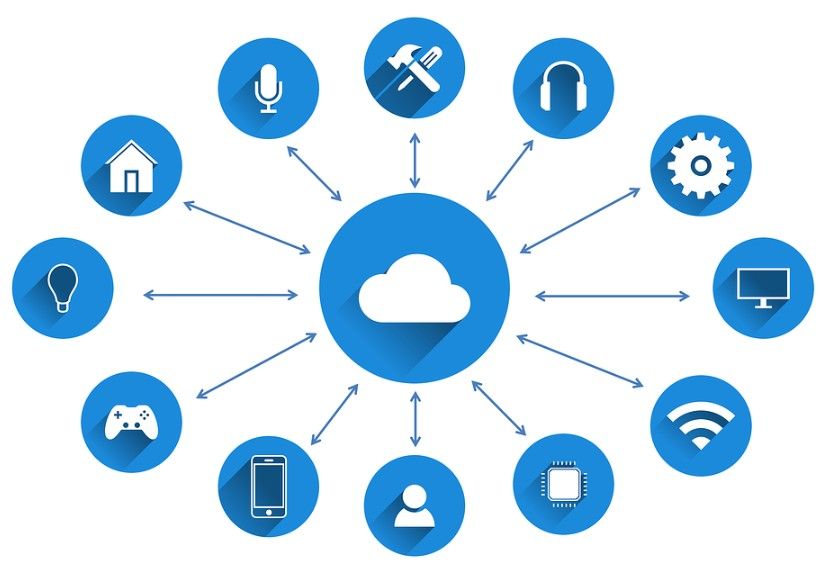While it is true that the world of business has changed dramatically in recent years, there are still some basic principles that can be followed to ensure success. The first and most important of these is a focus on innovation. The second, however, may surprise you: The importance of investing in SaaS technologies. In this blog post we’ll discuss the different types of Saas Technologies available for purchase today and how they can help any business succeed!

The Different Types of SaaS Technologies
Software as a Service (SAAS)
The software is hosted by the service provider and data resides in their database. The user can log on to an account with credentials provided when signing up for the service. This type includes Salesforce, Dropbox, Google Drive, etc. All you need is Internet access and login details such as username and password or single sign-on authentication through your organization’s identity management system.
Platform as a Service (PaaS)
The platform runs behind the scenes while allowing users to build applications that run on it without needing extensive knowledge of how the infrastructure works under the hood or worrying server configuration issues like security patches or OS updates. The user is not able to log on directly to the server but instead interacts with it via an application programming interface (API) or a custom-built web page using tools such as AJAX and JavaScript. This type includes Amazon Web Services, Microsoft Azure, Salesforce Heroku, etc. The developer has total control over resources since all configuration options are exposed through the API while security measures prevent unauthorized access from outside users.
Infrastructure as a Service (IaaS)
This model provides infrastructure for building virtual servers that run in data centers managed by either the provider itself or third party companies offering IaaS services backed up by SLA contracts guaranteeing quality of service levels based on metrics like monthly uptime percentage and network latency responses. The user can access the account using credentials provided when signing up for the service. The developer has total control over virtual servers, storage and network resources including firewall settings while security measures prevent unauthorized access from outside users. This type includes Amazon Web Services EC², RackSpace Cloud Servers, etc.
The Different Types of SaaS Technologies The different types include: Software as a Service (SAAS), Platform as a Service (PaaS) Infrastructure as a Service (IaaS).
Conclusion
The three main categories are easy to distinguish between. But there is no clear cut-off line where one category ends and another begins; they all have elements of both PaaS and IaaS thus making them hybrids in their own right. The type of service you choose depends on your needs and preferences. The different types include: Software as a Service (SAAS), Platform as a Service (PaaS) Infrastructure as a Service (IaaS).
The benefits of modern Internet services:
The first category is called Software as a Service (abbreviated to “SAAS”).
This method provides companies with an easy way to access programs and applications over the web.
It works by allowing customers to subscribe online. Rather than having to deal with bulky software packages or other physical objects.
Some examples include Salesforce CRM for sales teams, Chatroll for live chat support on websites, Marketo for customer relationship management tasks, Google Docs & Spreadsheets for document storage and G Suite which includes all these features.
The next category is called Platform as a Service (abbreviated to “PaaS”).
This type of service allows users to develop their own software without the need for the necessary infrastructure. The platform provides all the required components like databases, web servers and additional tools that are needed by developers in order to create applications.
Some examples include Heroku which was acquired by SalesForce in 2010; Engine Yard; Google AppEngine; Microsoft Azure; Amazon Elastic Beanstalk & OpenShift. The last category is called Infrastructure as a Service (abbreviated to “IaaS”).
It cuts down on costs associated with setting up physical machines since it only deals with computer resources. The services are used to build and maintain the servers, storage devices & networking components.
Some examples include Amazon Web Services; Microsoft Azure; Digital Ocean; Google Compute Engine & Rackspace Cloud Servers.
The importance of investing in SaaS technologies cannot be understated.
The technology industry is growing at a rapid pace. The last thing that business owners need to do is fall behind on what’s next in software trends. The first step for any company looking to use SaaS technologies should always begin with asking themselves “What are my needs?”
There are many different factors that go into making an investment decision regarding SaaS technology. So it’s important for companies not to rush this process. Once you have determined your needs as well as which types of SaaS solutions would best fit those needs. Then comes research time! The sheer number of options available can seem overwhelming. But there are some simple steps that can help narrow down the list based on the needs that you have already outlined.
Different types of SaaS technologies
The different types of SaaS technologies can be broken down into three main categories: The Cloud, The Internet and Internal Solutions. The cloud is a shared pool of resources which allows for better resource utilization while reducing costs compared to internal solutions. The internet provides access to applications over a network such as the web or private networks like VPNs. And finally, internal solutions reside on hardware in-house rather than being hosted externally by another company’s data center facilities. This may seem obvious but it’s important not to neglect considering these options too! No matter what your decision ends up being regarding SaaS technology there are many companies out there ready and willing to help so don’t be afraid to ask for advice! For more information visit our website https://ncreportcards.com/.






